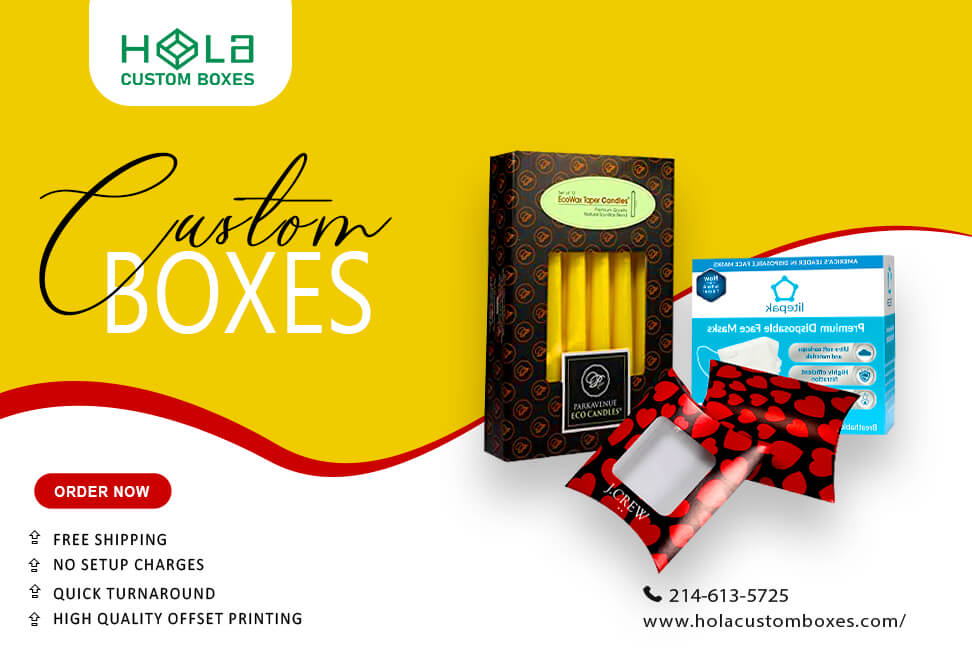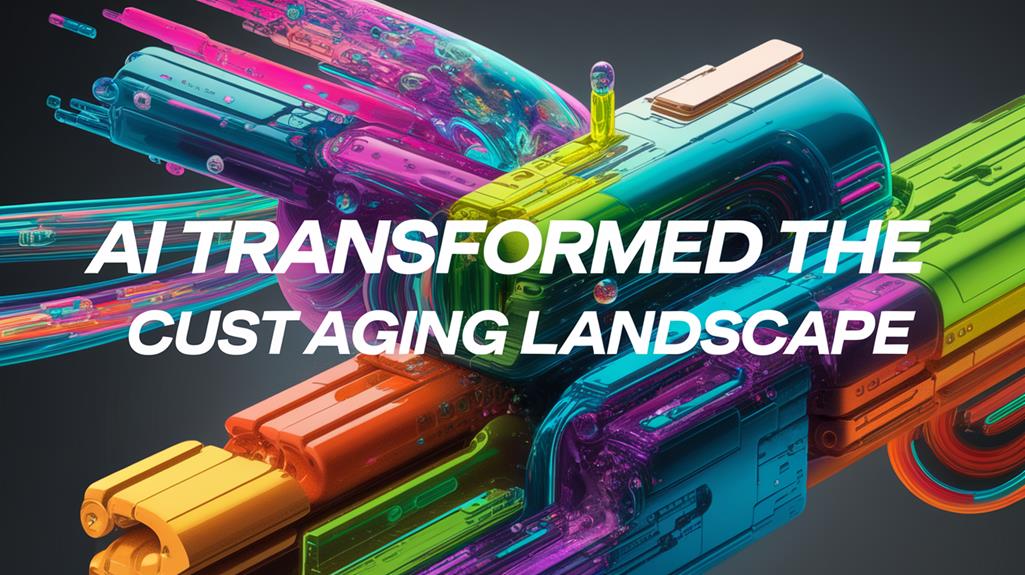AI Transformed The Custom Packaging Landscape
2025-08-04 12:25:32
AI has revolutionized custom packaging by greatly enhancing operational efficiency, personalization, and sustainability. Through advanced machine learning, companies can forecast demand, reduce waste by 20%, and achieve a defect detection rate of 99%. Generative AI accelerates design processes, creating tailored, hyper-personalized solutions that engage consumers. Sustainable practices are elevated as AI optimizes material sourcing and enhances traceability, aligning with the growing consumer demand for eco-friendly packaging. Additionally, AI-driven chatbots improve customer engagement by providing real-time support. This evolving landscape foreshadows a promising future for packaging, one rich in innovation and efficiency to explore further.
Main Points
- AI algorithms analyze consumer preferences, enabling brands to create tailored and personalized packaging designs that resonate with individual customers.
- Generative AI streamlines the design process, allowing rapid mockup creation and reducing time-to-market for custom packaging solutions.
- Smart packaging integrates interactive elements like QR codes, enhancing customer engagement and creating memorable unboxing experiences.
- AI optimizes material sourcing, promoting sustainable packaging options that meet growing consumer demand for environmentally friendly products.
- Machine learning enhances inventory management, streamlining supply chains and ensuring efficient delivery of custom packaging solutions to meet market demands.
Operational Efficiency and Innovation Of Custom Packaging
Operational efficiency and innovation are paramount in the packaging domain for maintaining competitive advantage. Integrating AI technology into packaging processes has revolutionized production and distribution, markedly enhancing speed and accuracy.
Machine learning algorithms forecast demand with remarkable precision, resulting in improved inventory management and reduced waste by up to 20%. This proactive approach optimizes resources and diminishes the environmental impact of excess materials.
Furthermore, AI-driven quality control systems achieve a defect detection rate of 99%, ensuring compliance with stringent industry standards and minimizing customer complaints. This level of precision fosters consumer trust and promotes brand loyalty.
Predictive AI-powered maintenance has also contributed to operational efficiency by reducing equipment downtime by 25%, facilitating smoother production workflows, and aligning production schedules with market demands.
The current market value of AI in packaging is $1.79 billion, with projections estimating growth to $23.4 billion by 2034. This underscores the transformative impact of innovation in the packaging sector.
As companies continue to embrace these advancements, the potential for enhanced operational efficiency and sustainability in custom packaging processes remains promising.
Custom Packaging Design and Personalization With AI

Integrating AI technology in design and personalization has transformed the packaging landscape, enabling brands to create visually compelling and highly tailored packaging solutions. AI algorithms meticulously analyze consumer preferences and market trends, generating unique designs that enhance product appeal and guarantee brand alignment. Generative AI dramatically accelerates the design process, producing multiple packaging mockups within minutes, facilitating rapid iteration and precise customization.
The following table illustrates key advancements in design and personalization through AI:
| Feature | Description | Benefits |
|---|---|---|
| Generative AI | Rapid creation of design mockups | Accelerated design process |
| Hyper-Personalization | Custom packaging with sensory elements | Enhanced consumer engagement |
| Smart Packaging | Integration of QR codes for interactivity | Increased security and information sharing |
| Automated Labeling | AI-driven labeling processes | Reduced errors and compliance |
Incorporating interactive elements and innovative packaging materials captivates consumers and transforms the unboxing experience. This synergy between AI and customization paves the way for future packaging solutions that are functional, profoundly engaging, and aligned with evolving consumer needs.
Sustainability and Traceability In Custom Packaging Boxes
How can businesses effectively balance sustainability with consumer demands in packaging? The answer lies in integrating AI solutions to optimize sustainable packaging practices.
A recent McKinsey survey reveals that 66% of consumers prioritize sustainable packaging, underscoring the urgent need for eco-friendly materials. AI enhances the sourcing process, ensuring that materials used are practical and recyclable, aligning with the growing demand for environmentally responsible options.
Furthermore, AI notably improves traceability, meticulously tracking materials from production to recycling. This capability is essential for effective waste management and supports circular economy initiatives, allowing businesses to minimize material waste throughout the packaging lifecycle.
Companies like Lenovo exemplify the impact of AI, demonstrating reduced carbon emissions through smarter material choices and innovative packaging design.
AI-Driven Packaging Strategies for Customer Engagement
In today’s competitive market, effective customer engagement through packaging is vital for building brand loyalty and enhancing the overall consumer experience. Leveraging AI tools, businesses can create highly personalized packaging solutions that resonate on a deeper level with their target audience. From 24/7 AI-powered chatbots offering instant support to packaging designs shaped by consumer behavior data, brands can use real-time insights to adapt and evolve their packaging strategies dynamically.
Interactive Features That Drive Brand Loyalty
Smart packaging innovations—such as QR codes that unlock interactive content or hyper-personalized designs tailored to individual preferences—enhance the unboxing experience and encourage social sharing. These features not only captivate consumers but also foster emotional connections with the brand. By combining AI-driven personalization with engaging visual and functional elements, businesses can remain ahead of trends, strengthen customer relationships, and significantly boost satisfaction and repeat purchases.
Custom Packaging Market Trends and Future Outlook
Emerging trends in the packaging industry indicate a transformative shift driven by artificial intelligence, poised to redefine the landscape over the next decade. The packaging market is projected to increase from $1.79 billion to $23.4 billion by 2034, with a remarkable CAGR of 29.3%. Key drivers of this growth include advancements in AI in packaging, which are revolutionizing packaging design and manufacturing processes.
Sustainable packaging is at the forefront, as 66% of consumers prioritize eco-friendly solutions. Smart packaging innovations, informed by consumer preferences, are becoming essential for brands aiming to enhance engagement and satisfaction. AI facilitates the creation of custom boxes and packaging that cater to hyper-personalized consumer demands while optimizing material sourcing and waste reduction strategies.
Moreover, machine learning and real-time data analytics are expected to improve inventory management and supply chain efficiency considerably, reducing operational costs and waste.
As these market trends evolve, the integration of AI will empower businesses to respond rapidly to shifting consumer demands, ensuring a competitive edge in a rapidly changing environment. Driven by AI innovations, the future of packaging is not only about aesthetics but also about sustainability and efficiency.
